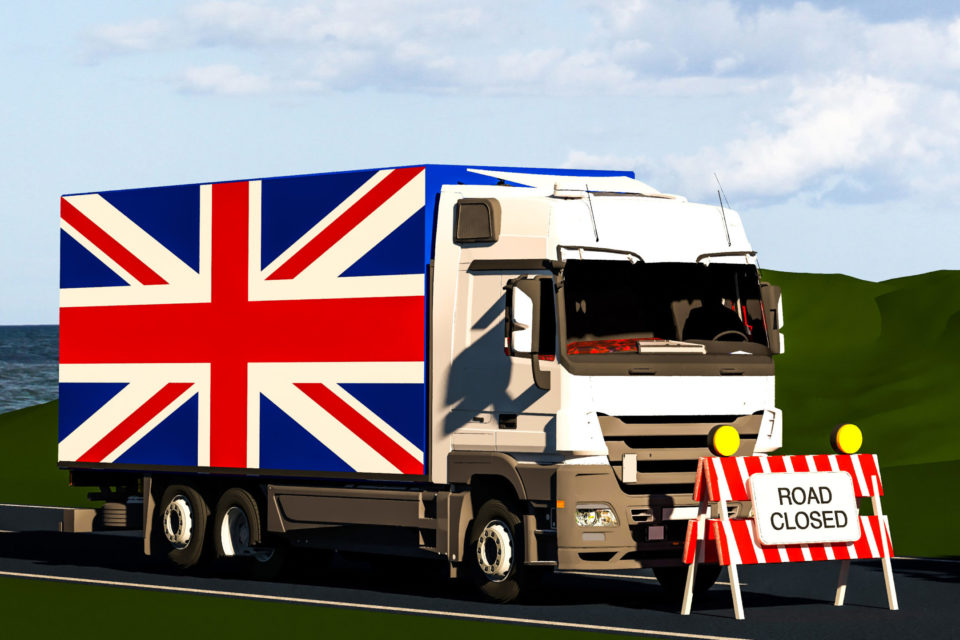At Plan we always try to look for positives. So it was great to hear a Brexit deal was agreed shortly before the New Year deadline. And we’d prefer to look towards the opportunities leaving the EU might present. Happily the predicted pile up of couriers and hauliers at ports hasn’t happened since Brexit kicked in. However that appears to be where the good news ends at the moment. The first couple of weeks of Post Brexit has mainly brought a focus on the teething problems British firms are encountering. Some of the challenging practicalities of the UK’s trade deal with Europe are outlined below:
Courier Chaos
Major courier firm DPD have announced that the company is temporarily suspending parcel deliveries to the EU due to extra customs data requirements. DPDgroup is the largest parcel delivery network in Europe. Every day 5.3 million parcels are handled globally via its brands DPD, Chronopost, SEUR and BRT. The firm estimated that a fifth of all parcels had incorrect or incomplete data when being sent. This resulted in them having to be returned to the dispatcher and adversely affected delivery times. The company highlighted a lack of awareness of customers regarding the additional details that are needed as well as “rigid requirements” at UK ports causing “delays and congestion.” Therefore the “pause and review” of their European service was needed before being able to confirm when it would be in a position to recommence .
Administrative & Tax Burden
A reader’s letter on thecourier.co.k website outlines the potential additional administrative burden on UK companies. The business owner describes how it takes now takes 12 as opposed to 1 minute to send a parcel to the EU. Since Brexit: EORI numbers, commodity codes, product numbers, brand, colour, descriptions, individual weights and cost must be supplied. Previously the firm only needed to paste a customer’s address, phone number and email into their shipper’s software. The parcel’s recipient will also have to any VAT and a Customs Import Tax. The writer ask the questions, “Why order from the UK when you can get the same product for less locally without any paperwork?.” He explains that due to the reduced competitiveness of his company’s offering they’ve already experienced a drop in sales to the EU.
Hauliers “Overwhelmed”
Industry association Logistics UK has highlighted delays to deliveries arriving in Belfast due to lorry drivers not being furnished with adequate paperwork. The end of the transition period on December 31st has meant the introduction of “red tape” in the form of “new checks” on goods delivered to Northern Ireland from other parts of the UK.
Seamus Leheny, a representative of the trade body in Northern Ireland said that the new arrangement with the EU single market has resulted in the requirement for checks on goods arriving from the rest of the UK, “You cannot simply wish away friction and administration when you implement customs controls anywhere in the world.”
Complexity and Cost for Retailers
Steve Rowe, chief executive of Marks & Spencer, expressed his belief that the company will face potential tariffs on a third of goods intended for its EU based shops, “Tariff-free does not feel like tariff-free when you read the fine print,”
Discussing the details of the UK’s deal with the European Union the ailing retailer’s CEO said that “very complex administrative processes” would drive up expenses for the firm. He highlighted the complexity and implications of the new “rules of origin” when bringing products in from outside the EU and sending to Ireland.
For example, before Brexit the retailer might import items from outside the EU into the UK and then forward it on to stores in the EU. Doing so now would probably result in a tariff as it would not have been sufficiently altered. Many of the firms’ popular Percy Pig confectionary sweets will meet this fate!
Discovering ways to avoid or reduce the full impact of the new arrangement will be a substantial drain or cost for businesses. M & S are likely to use bonded warehouses. Goods previously transported to the UK before being distributed to the EU will have to go directly. Rowe highlighted that this distraction and burden would be more significant for smaller companies.
Fines at Ports
As mentioned at the outset, the much feared queues of trucks stacked up along motorways have not appeared so far. Though quantities of lorries arriving will increase dramatically throughout the month as the holiday season becomes a distant memory. Despite these low numbers Kent police had already handed out hundreds of penalties to drivers heading to the Eurotunnel and Dover without the correct documentation. Assistant Chief Constable Claire Nix reconfirmed the importance of companies familiarising themselves with the new requirements.
As the year progresses more information will come to light regarding the practicalities and implications of the trade deal. Hopefully the Government may be able to tackle some of the simpler and avoidable obstacles that arise with their EU counterparts. Though even a mere fine tuning of the arrangement may prove very challenging given the number of political bodies involved.


